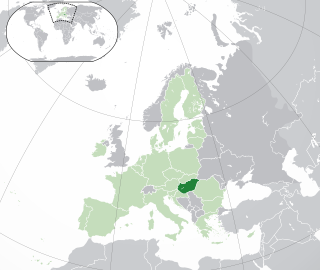
Lesbian, gay, bisexual, and transgender (LGBT) people in Hungary face legal and social challenges not experienced by non-LGBT residents. Homosexuality is legal in Hungary for both men and women. Discrimination on the basis of sexual orientation and sex is banned in the country. However, households headed by same-sex couples are not eligible for all of the same legal rights available to heterosexual married couples. Registered partnership for same-sex couples was legalised in 2009, but same-sex marriage remains banned. The Hungarian government has passed legislation that restricts the civil rights of LGBT Hungarians – such as ending legal recognition of transgender Hungarians and banning LGBT content and displays for minors. This trend continues under the Fidesz government of Viktor Orbán. In June 2021, Hungary passed an anti-LGBT law on banning "homosexual and transexual propaganda" effective since 1 July. The law has been condemned by seventeen member states of the European Union. In July 2020, the European Commission started legal action against Hungary and Poland for violations of fundamental rights of LGBTQI people, stating: "Europe will never allow parts of our society to be stigmatized."

New Zealand lesbian, gay, bisexual, and transgender (LGBT) rights are some of the most extensive in the world. The protection of LGBT rights is advanced, relative to other countries in Oceania, and among the most liberal in the world, with the country being the first in the region to legalise same-sex marriage.

Lesbian, gay, bisexual, and transgender (LGBT) people in Japan have fewer legal protections than in most other developed countries, although some developments towards stronger rights have been made in the 2020s. Same-sex sexual activity was criminalised only briefly in Japan's history between 1872 and 1881, after which a localised version of the Napoleonic Penal Code was adopted with an equal age of consent. Same-sex couples and households headed by same-sex couples are ineligible for the legal protections available to opposite-sex couples, although since 2015 some cities and prefectures offer symbolic "partnership certificates" to recognise the relationships of same-sex couples. Japan is the only country in the G7 that does not legally recognize same-sex unions nationally in any form. In March 2021 and May 2023, the Sapporo and Nagoya District Courts ruled that not recognising same-sex marriage was a violation of the Constitution respectively. While in June 2022, the Osaka District Court ruled that not recognising same-sex marriage was not a violation of the Constitution, in November 2022, the Tokyo District Court ruled that the absence of same-sex marriage legislation was an unconstitutional state of affairs but did not violate the Constitution, though the court's ruling has no immediate legal effect. In June 2023, the Fukuoka District Court ruled that the ban on same-sex marriage was constitutional. A second ruling in September 2023 concluded that same-sex relationships should not be excluded from Japan's marriage system.

Lesbian, gay, bisexual, and transgender (LGBT) people in Armenia face legal and social challenges not experienced by non-LGBT residents, due in part to the lack of laws prohibiting discrimination on the grounds of sexual orientation and gender identity and in part to prevailing negative attitudes about LGBT persons throughout society.
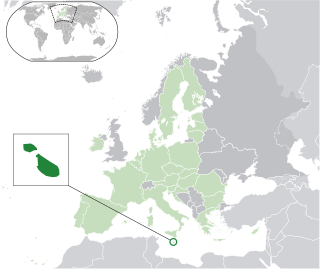
Lesbian, gay, bisexual, and transgender (LGBT) rights in Malta rank among the highest in the world. Throughout the late 20th and early 21st centuries, the rights of the LGBT community received more awareness and same-sex sexual activity was legalized on 29 January 1973. The prohibition was already dormant by the 1890s.
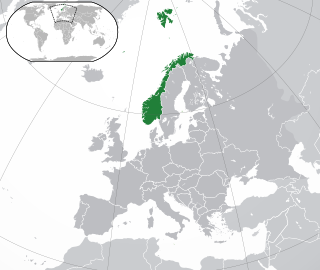
Lesbian, gay, bisexual, and transgender (LGBT) people in Norway have the same legal rights as non-LGBT people. In 1981, Norway became one of the first countries in the world to enact an anti-discrimination law explicitly including sexual orientation. Same-sex marriage, adoption, and assisted insemination treatments for lesbian couples have been legal since 2009. In 2016, Norway became the fourth country in Europe to pass a law allowing the change of legal sex for transgender people based on self-determination. On 1 January 2024, conversion therapy became legally banned within Norway.
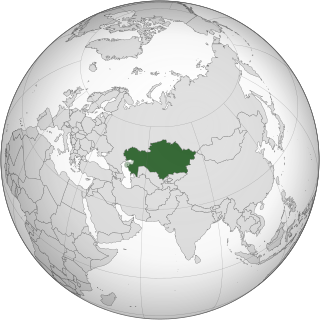
Lesbian, gay, bisexual, and transgender (LGBT) people in Kazakhstan face significant challenges not experienced by non-LGBT residents. Both male and female kinds of same-sex sexual activity are legal in Kazakhstan, but same-sex couples and households headed by same-sex couples are not eligible for the same legal protections available to opposite-sex married couples.
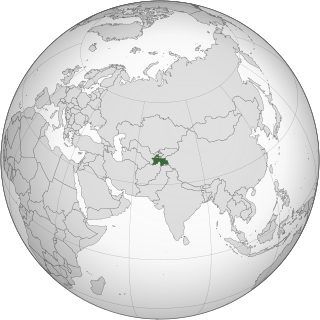
Lesbian, gay, bisexual, and transgender (LGBT) people in Tajikistan face significant challenges not experienced by non-LGBT residents. Both male and female types of same-sex sexual activity are legal in Tajikistan, but same-sex couples and households headed by same-sex couples are not eligible for the same legal protections available to heterosexual married couples.

Laws governing lesbian, gay, bisexual, and transgender (LGBT) rights are complex in Asia, and acceptance of LGBT persons varies widely. Same-sex sexual activity is outlawed in at least twenty Asian countries. In Afghanistan, Brunei, Iran, Qatar, Saudi Arabia, the United Arab Emirates and Yemen homosexual activity is punishable by death. In addition, LGBT people also face extrajudicial executions from non-state actors such as the Islamic State of Iraq and the Levant and Hamas in the Gaza Strip. While egalitarian relationships have become more frequent in recent years, they remain rare.

Lesbian, gay, bisexual, and transgender (LGBT) people in Guatemala face legal challenges not experienced by non-LGBT residents. Both male and female forms of same-sex sexual activity are legal in Guatemala.

Lesbian, gay, bisexual, and transgender (LGBT) persons in the U.S. state of Wyoming may face some legal challenges not experienced by non-LGBT residents. Same-sex sexual activity has been legal in Wyoming since 1977, and same-sex marriage was legalized in the state in October 2014. Wyoming statutes do not address discrimination on the basis of sexual orientation and gender identity; however, the U.S. Supreme Court's ruling in Bostock v. Clayton County established that employment discrimination against LGBT people is illegal under federal law. In addition, the cities of Jackson, Casper, and Laramie have enacted ordinances outlawing discrimination in housing and public accommodations that cover sexual orientation and gender identity.
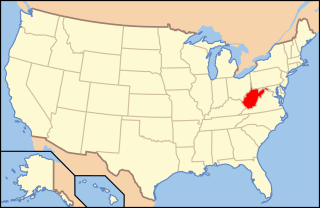
Lesbian, gay, bisexual, and transgender (LGBT) people in the U.S. state of West Virginia face legal challenges not faced by non-LGBT persons. Same-sex sexual activity has been legal since 1976, and same-sex marriage has been recognized since October 2014. West Virginia statutes do not address discrimination on account of sexual orientation or gender identity; however, the U.S. Supreme Court's ruling in Bostock v. Clayton County established that employment discrimination against LGBT people is illegal.
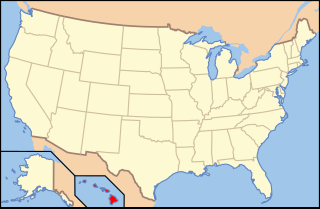
Lesbian, gay, bisexual, and transgender (LGBT) people in the U.S. state of Hawaii enjoy the same rights as non-LGBT people. Same-sex sexual activity has been legal since 1973; Hawaii being one of the first six states to legalize it. In 1993, a ruling by the Hawaiʻi Supreme Court made Hawaii the first state to consider legalizing same-sex marriage. Following the approval of the Hawaii Marriage Equality Act in November 2013, same-sex couples have been allowed to marry on the islands. Additionally, Hawaii law prohibits discrimination on the basis of both sexual orientation and gender identity, and the use of conversion therapy on minors has been banned since July 2018. Gay and lesbian couples enjoy the same rights, benefits and treatment as opposite-sex couples, including the right to marry and adopt.

Lesbian, gay, bisexual, and transgender (LGBT) people in North Macedonia face discrimination and some legal and social challenges not experienced by non-LGBT residents. Both male and female same-sex sexual activity have been legal in North Macedonia since 1996, but same-sex couples and households headed by same-sex couples are not eligible for the same legal protections available to opposite-sex married couples.
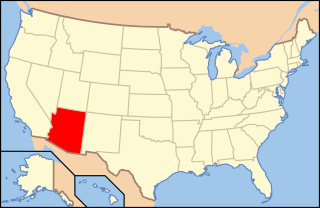
Lesbian, gay, bisexual, and transgender (LGBT) people in the U.S. state of Arizona may face legal challenges not experienced by non-LGBT residents. Same-sex sexual activity is legal in Arizona, and same-sex couples are able to marry and adopt. Nevertheless, the state provides only limited protections against discrimination on the basis of sexual orientation and gender identity. Several cities, including Phoenix and Tucson, have enacted ordinances to protect LGBT people from unfair discrimination in employment, housing and public accommodations.
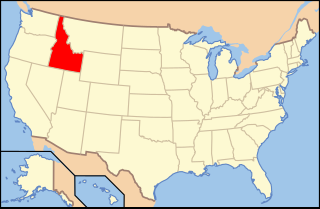
Lesbian, gay, bisexual and transgender (LGBT) people in the U.S. state of Idaho face some legal challenges not experienced by non-LGBT people. Same-sex sexual activity is legal in Idaho, and same-sex marriage has been legal in the state since October 2014. State statutes do not address discrimination based on sexual orientation and gender identity; however, the U.S. Supreme Court's ruling in Bostock v. Clayton County established that employment discrimination against LGBT people is illegal under federal law. A number of cities and counties provide further protections, namely in housing and public accommodations. A 2019 Public Religion Research Institute opinion poll showed that 71% of Idahoans supported anti-discrimination legislation protecting LGBT people, and a 2016 survey by the same pollster found majority support for same-sex marriage.

Lesbian, gay, bisexual, and transgender (LGBT) rights in Guam have improved significantly in recent years. Same-sex sexual activity has not been criminalized since 1978, and same-sex marriage has been allowed since June 2015. The U.S. territory now has discrimination protections in employment for both sexual orientation and gender identity. Additionally, federal law has provided for hate crime coverage since 2009. Gender changes are legal in Guam, provided the applicant has undergone sex reassignment surgery.

In the U.S. Virgin Islands, Lesbian, gay, bisexual, and transgender (LGBT) rights have evolved substantially in recent years. Same-sex sexual activity has been legal since 1985. The region also provides explicit legal protections against discrimination for LGBT residents since December 2022. Following the Supreme Court's ruling in Obergefell v. Hodges on June 26, 2015, which found the denial of marriage rights to same-sex couples unconstitutional, same-sex marriage became legal in the islands.

The following outline offers an overview and guide to LGBT topics.
Kyrgyz anti-LGBT propaganda law has been enacted on 14 August 2023. The bill was introduced on 17 March 2023 and will come into effect on 30 August 2023. The official title of the law is "On introducing amendments to several legal acts of the Kyrgyz Republic". It consists of amendments to the Code of Misdemeanors, the law "On measures to prevent harm to children's health, physical, intellectual, mental, spiritual and moral development in the Kyrgyz Republic", and the law "On Mass Media". The law expands the definition of "information harmful to the health and development of children" to include information that "denies family values, promotes non-traditional sexual relationships, and encourages disrespect for parents or other family members" and subjects those who disseminate such information among minors to fines.



















